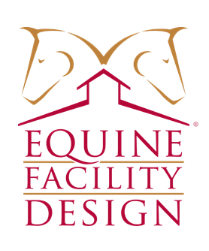A situation came up this week that really got me thinking about making the difficult decision of retiring a horse.
When is enough, enough? When have these generous animals given us enough so that it is now our turn to be generous with them?
Some horse owners deal with the end of usefulness pragmatically by delivering their faithful steeds to an auction for the few dollars they might bring, and the many dollars saved on the care of a horse deemed no longer useful.
Others go above and beyond in geriatric care, as a friend of mine has. Caring for her horse for many more years than she ever rode him, all with no complaint, and much tears when he left her. Many horse lovers end up retiring horses that belonged to others in their prime, because they can still see the spirit of what the horse once was, and want to honor them with the dignity of a comfortable and safe place to live out their years.
We are told that “motion is the lotion” and that our horses should continue to move, hopefully into their much later years under saddle, but surely on their own with lots of pasture turnout. Perhaps, slowly, less of the former and more of the latter if you are lucky, or the decision is made for you in one moment due to a catastrophic injury or illness.
Many of my horses have retired relatively young, due to COPD (basically horse asthma), lameness due to a conformation problem (such as club foot) or prior hard use, Cushings disease, or in another case, a heart murmur. I am sure as long as I own horses, I will not run out of yet another unique diagnosis for which I have to retire yet another one. Once my horses are retired, they go barefoot, manes and tails untamed, whiskers lengthen with age; cared for but no longer coiffed.They know they are free of bits and saddles. Once again, not experienced since foalhood, their time is solely their own.
Fortunately, with each horse, I always remember my last ride: whether it was riding my police horse, Streaker, past Nordstroms through downtown Portland, one last time before retiring him due to ringbone, or my last steps of an amazing passage (a dressage movement: an elevated slow trot) on Rio, when we both decided his heart murmur was making riding too hard, or a last slow trail ride on Beau, pausing often to let him catch his breath as he struggled with COPD. And there were other last rides, too painful and bittersweet to write about here,but I remember every one of them.
I believe each horse tries to tell us when they are ready to stay home. Streaker told me I made the right decision when he no longer minded when I took the others and left him behind. If you listen, even behind the dedicated try, they will tell us when they are done. It is important for us to advocate on behalf of the horse. There is a time when enough is enough and it is time to cherish and remember… your last ride.

